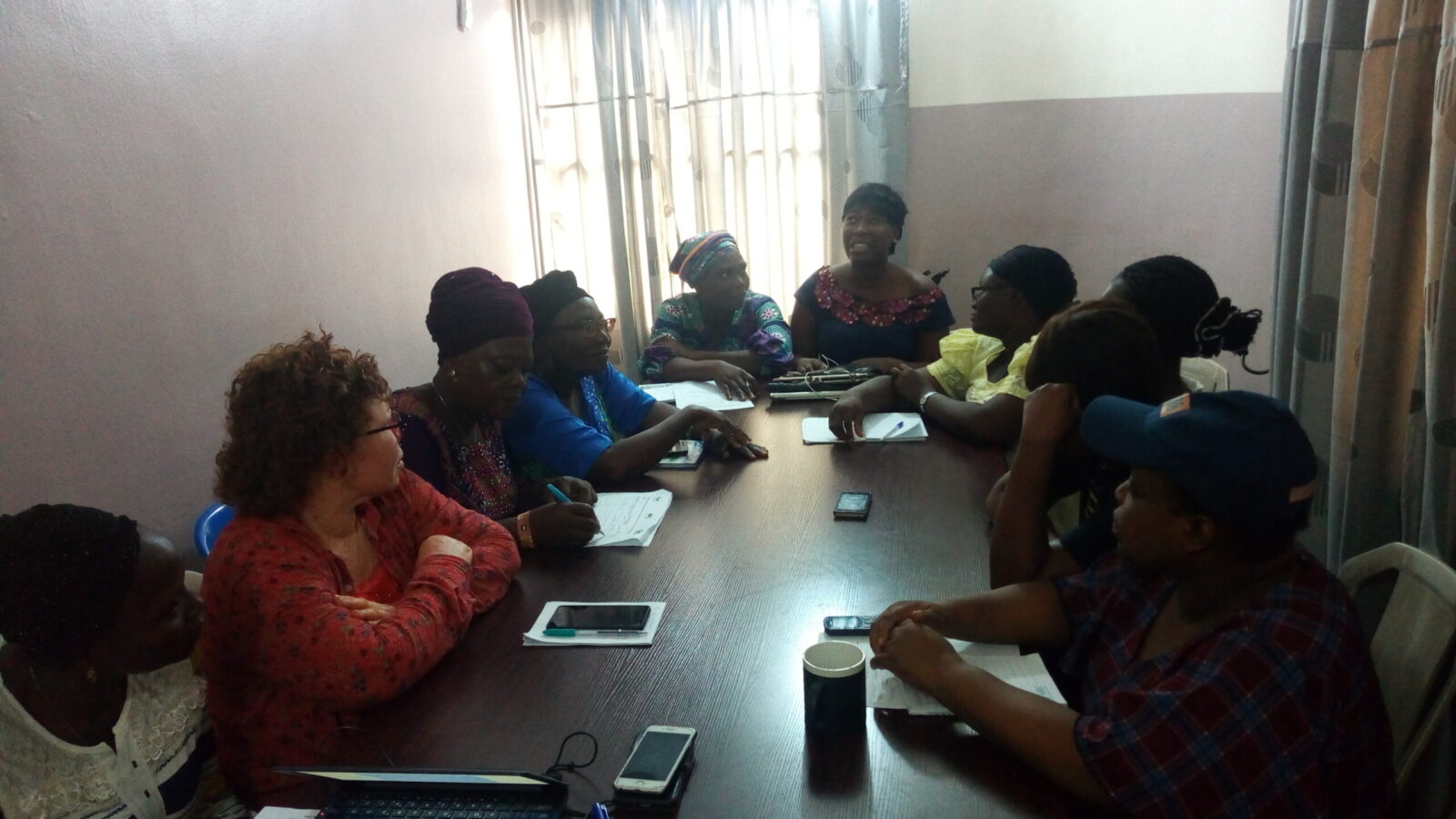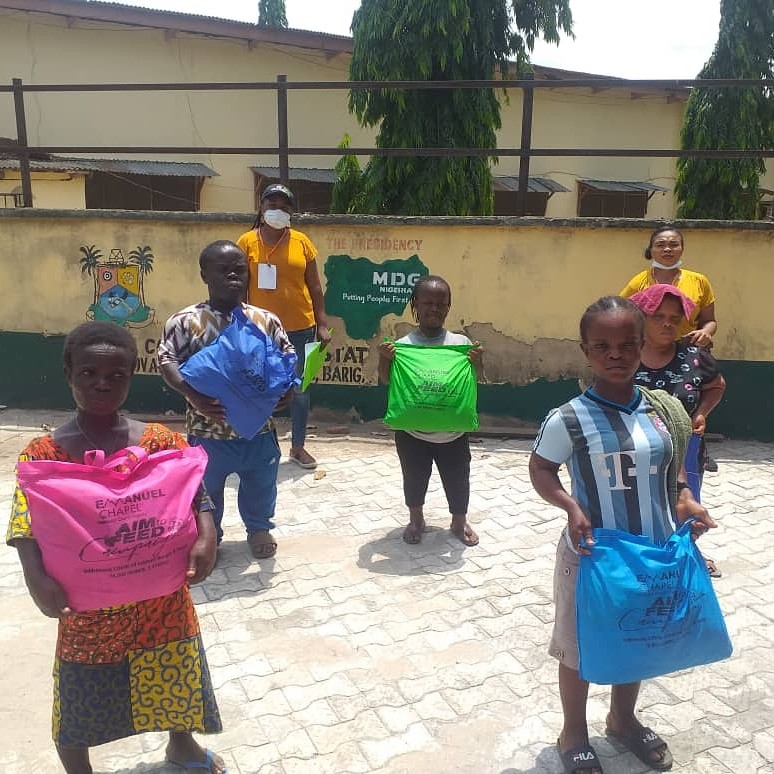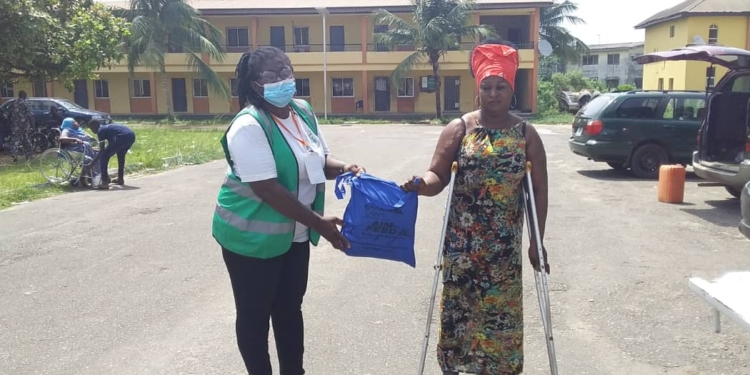Since Nigeria recorded its index case of COVID-19 on February 27th, 2020, so many efforts have been made by the government at the National and States level to contain the spread of the infectious diseases.
Most of the efforts include sensitization on how people can prevent the spread of the virus using different communication strategies and channels; closing of businesses, places of worship and public gatherings to ensure strict adherence to social and physical distancing.
The stay at home order in some parts of the country have yielded some level of compliance and to cushion the effects, the Federal Government and State Governments have provided some relief materials to residents, most especially the vulnerable groups.
In Lagos, the state government uses the traditional and social media to communicate updates about COVID-19 to Lagosians and those who do not have access to these channels could depend on information from neighbours and friends.
The state also commenced the distribution of palliatives to the vulnerable; poor, persons with disabilities and the elderly to ensure they are not affected by the lockdown which has affected residents most especially those who earn daily income.
Those who are worst hit with this order and spread of the virus are Persons with Disabilities in general and Women with Disabilities in particular. Women with disabilities depend on people’s aid, guide and support for their daily activities and issues about physical distancing is a thug of war for them to comply.

Going out to access daily essentials have also been challenging as there are restricted access due to the lock down.
Regarding access to information on COVID-19, those with hearing impairment are excluded if the communications are not signed and the visually impaired cannot access the social media graphics which gives daily illustration and updates of cases and prevention tips. Those with intellectual disabilities who require special communication strategies and techniques are also cut off as the messaging do not target them.
Ihuoma Sussan Kelechi, a woman with physical disability lamented that, “Women and Girls with Disabilities, against their wish, are forced to stay at home without being given any consideration. This aggravates the burden of disability on us because most women with disability depend on daily income for survival.”
She explained that despite opportunity to go out to access essential materials, it is more difficult for wheelchair users because, “you are not sure if the person assisting you with your mobility aid has been infected and this makes us more vulnerable.”
Ihuoma explained that the worst of it is the exclusion of Women with Disabilities in decision making and planning by the State Government and thereafter solicited for inclusion to ensure proper and adequate planning for the disability community.
She buttressed that, “all efforts by the government to ameliorate the current challenges occasioned by the ravaging COVID-19 pandemic would be incomplete if the Nigerian Women and Girls with Disabilities are NOT fully included and allowed access into the plans to contain corona virus.
“We are very much affected especially, in this period of shutdown and lockdown, we don’t have mobility to access healthcare facilities and our health is deteriorating.”
Faith Ekienabor, a Blind woman explained that “COVID-19 has affected everyone drastically, now imagine its impact on WWD. There has been a lockdown and as such some women with disabilities who rely on daily income for survival have been affected and the ability to take care of their family has been challenging.
“A Blind person totally depend on a sighted persons for assistance, and with the regulations of social and physical distancing, this has proved a lot of difficulty for Blind persons even when they want to access essential services.
The lockdown has disrupted my MSc. studies, just like most people have been affected, I’m in the house and reading from home so when I return to school, I will be able to cope.
Another woman with physical disability, Abgail Turkson who explained that WWDs should have been engaged and catered for in all the palliatives and relief materials provided by the government because they are mostly affected.
Turkson disclosed that she couldn’t walk a long distance to access the health care facilities.
Deaconess Adedoyin Beyioku-Alase, popularly known as Mama Deaf, said the pandemic gas truly affected everyone but women with disabilities have had to bear the brunt more.
“Truly it affects everyone including me and other women with Disabilities badly because of No movement, staying at home and other difficulties that came with it. It is not easy at all in all spheres of life. May God see us through, Amen
“Women with Disabilities are not carried along, few of us are able to get the stimulus packages through the effort of our JONAPWD Lagos Chairman, Dr. Adebayo which is very small to the Population of PWDs in the state. It is not encouraging at all. Many women with Disabilities are suffering seriously because of this lockdown”, she added.
For women and girls with intellectual disabilities, Mrs. Joko Dawodu Omotola, President of the Association for Intellectual and Developmental Disabilities of Nigeria (AIDDN) a Parent Advocacy Group, also explained that girls with disabilities have been affected by COVID-19 and the government has not made adequate provision to cater for them.
She said, “it’s always been said that the government cannot determine/ decide our needs in our absence. Women are disproportionately represented and we are most affected.”

Mrs. Joko explained how girls with intellectual disabilities are affected by coronavirus, noting that, “they are susceptible to COVID-19, because most of them have underlying health conditions e.g. breathing problems, which expose them to Covid-19.
“Lockdown affects their independence. Our girls and women face discrimination, stigmatization, isolation (nobody to relate with), economic isolation which is poverty, exploitation, child labor (since they don’t go to school), abuse; malnutrition and depression which occurs due to worries over health and gender-based violence.”
Speaking on the mode of communications about COVID-19, she explained that, “It’s very difficult for people with intellectual disabilities to receive and understand information on prevention of Covid-19 for lack of assistive devices that will enhance comprehension.”
Kemi Odusanya, a Blind woman corroborated the neglect of women with disabilities in the discourse and said, “I’ve not heard from my women leader and we’ve not been carried along in any way.
Odusanya recommended that, “the support they can provide for us is access to finance, if the government and private organizations can provide financial support for WWDs, it will ameliorate a lot of the problem we are currently faced with.”
On her part, Ekineabor recommended that “the government and private organization can reduce the effect of COVID 19 on women with disabilities by involving them because ‘nothing for us without us’. Allow women with disability to give preferable interventions themselves, what you think they need might not be what they want. Allow “US” make decisions as it affects us, we’re human beings first before our disabilities.”
Ekineabor also said that, “it took a lot of advocacies before we could get some palliatives which is grossly inadequate for wwd in Lagos state.
“There’s still a whole lot that needs to be done, I would want the government to liaise with clusters and get the database of PWDs and WWDs to provide for them adequately, that would be fair enough.”
Turkson believes that WWDs should be engaged and supported, “our ability is stronger than our disability and we should be engaged at all levels of interventions and programming. Also, financial support should be included for WWDs as many of them have not been generating income and they have financial responsibilities to cater for.”
Mrs. Joko recommended that the government and private organizations can pool funds together to credit the accounts of girls and women with disabilities to help reduce the hardship.
She added that, “government should advance low interest loans with about 4 months moratorium, to empower women with disabilities in order to reduce their economic burden.
“There should also be support for affected women /girls with intellectual disabilities, that have suffered abuse or any gender based violence during the Coronavirus period.”
She added that “funds donated towards the Covid-19 can be better managed by women who are hardworking, knowledgeable and intelligent. This will ensure judicial utilization of the funds.”
Mrs. Beyioku hopes that the government will engage Sign Language interpreters every time they are communicating about COVID-19, so they are adequately involved.
Accessible and inclusive messaging is essential to ensure no one is left behind; the blind, the deaf and persons with intellectual disability should be carried along as they are more vulnerable and need to be aware of all precautionary measures to be taken.
Copyright BONews
All rights reserved. This material, and other digital content on this website, may not be reproduced, published, broadcast, rewritten or redistributed in whole or in part without prior express written permission from BONews.


Comments 1